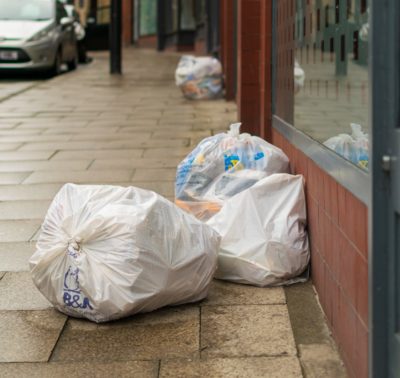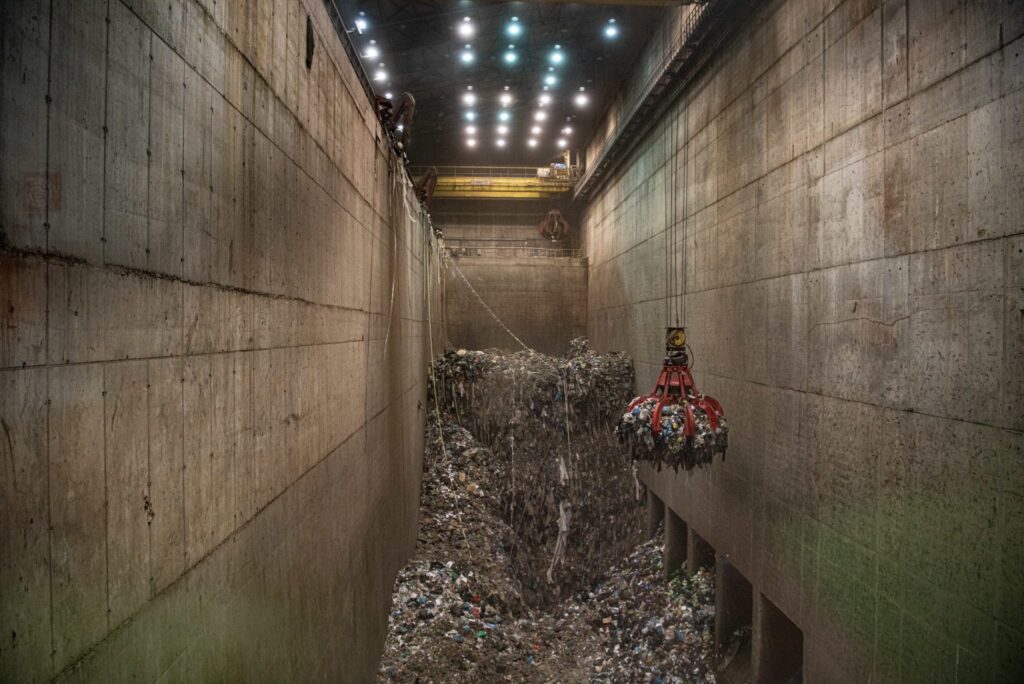The Waste Network Chairs, which includes six heads of local authority groups, yesterday (4 November) wrote to Environment Secretary George Eustice urging his department to “take a lead” and deliver on its proposals for business waste collections.
This comes amid mounting pressure on Defra over its £1.5 billion plans for the collection of packaging waste from businesses. In a consultation launched earlier this year, Defra set out three payment mechanisms for the scheme, which would see businesses receive rebates, funded by producers, for packaging waste collected in order to bring the costs as “close to zero as possible” (see letsrecycle.com story).
The Waste Network Chairs’ letter was sent in response to a claim made by the Environmental Services Association in September that operators faced an “existential threat” as a result of the proposals (see letsrecycle.com story).
‘Doomsday’
Under a ‘fourth option’ created by a sprint group, local authorities would take over the collection of business waste collections from “small and micro businesses”. A fifth option was also put forward by the commercial waste sector and focused on a voucher scheme-style system.

It its letter, the Waste Network Chairs states that it is “disappointing” that the drive to improve commercial waste recycling is “so fiercely resisted” by some stakeholders.
The letter asked that the government delivered on its proposals for business waste packaging collections “in the knowledge that the doomsday warnings from some sections of industry will not play out”.
It reads: “We see that there are significant gains to be made by waste management companies and rather than viewing the government proposals as taking something away, it is in fact an opportunity for significant growth (perhaps doubling) of recycling markets.”
Waste Network Chairs is a coordinating forum for local authority networks and includes ADEPT, the Local Authority Recycling Advisory Committee (LARAC), and the National Association of Waste Disposal Officers (NAWDO), amongst others.
Rather than viewing the government proposals as taking something away, it is in fact an opportunity for significant growth of recycling markets
– Waste Network Chairs
The letter’s signatories include Steve Palfrey, chair of the ADEPT waste group, Victoria Lawson, chair of the London Environment Directors Network, Neil Carrett, chair of the Association of London Cleansing Officers, Emma Beal, chair of NAWDO, Tim Walker, chair of the Local Government Technical Advisors Group in Northern Ireland, and Carole Taylor, chair of LARAC.
Demands
Waste Network Chairs says they are interested in local economic development and are “agnostic” as to which businesses deliver on this.
They add that analysis by WRAP of the efficiency gains from zoning/franchising highlights the “inefficiency” of the current commercial waste market and the “significant efficiency benefits” possible if systemic change was undertaken.
Their letter sets out three key demands of government:
- That policy is evidence-based, drawing on the extensive (and objective) research that WRAP has conducted in this context;
- That the government considers beneficial economic activity in the round and sets aside the views of individual business interests over other businesses/stakeholders;
- And, that the solution pursued is set within the context of other key government priorities, specifically net zero, local air quality, social equality, waste crime and local environmental control.
The letter concludes: “We also see the role of emerging digital solutions and clearly the future of business waste recycling should be both future proofed and adaptable.
“We believe that both public and private sectors innovate best when government takes a timely lead to set the scope of the challenge.”
Conclusions
The Waste Network Chairs say they are keen to provide any further evidence needed by the government to inform its decisions.
They claim that if the government listens to its demands, it will come to the following conclusions:
- Pursuing solutions that perpetuate the current systemic failings of the commercial waste market will serve most businesses “poorly”.
- Zoning and franchising is “viable” and will deliver on a number of government objectives if “properly designed”.
- Local delivery of business support and a fund for strategic development of packaging waste infrastructure are not “concessions”, they are “necessities”.
- Local government environmental enforcement will not be able to absorb the consequences of a poorly designed solution.
- Fraud is a “significant issue”, although it is not the only issue in play.
Related link
Waste Network Chairs business waste open letter










Subscribe for free